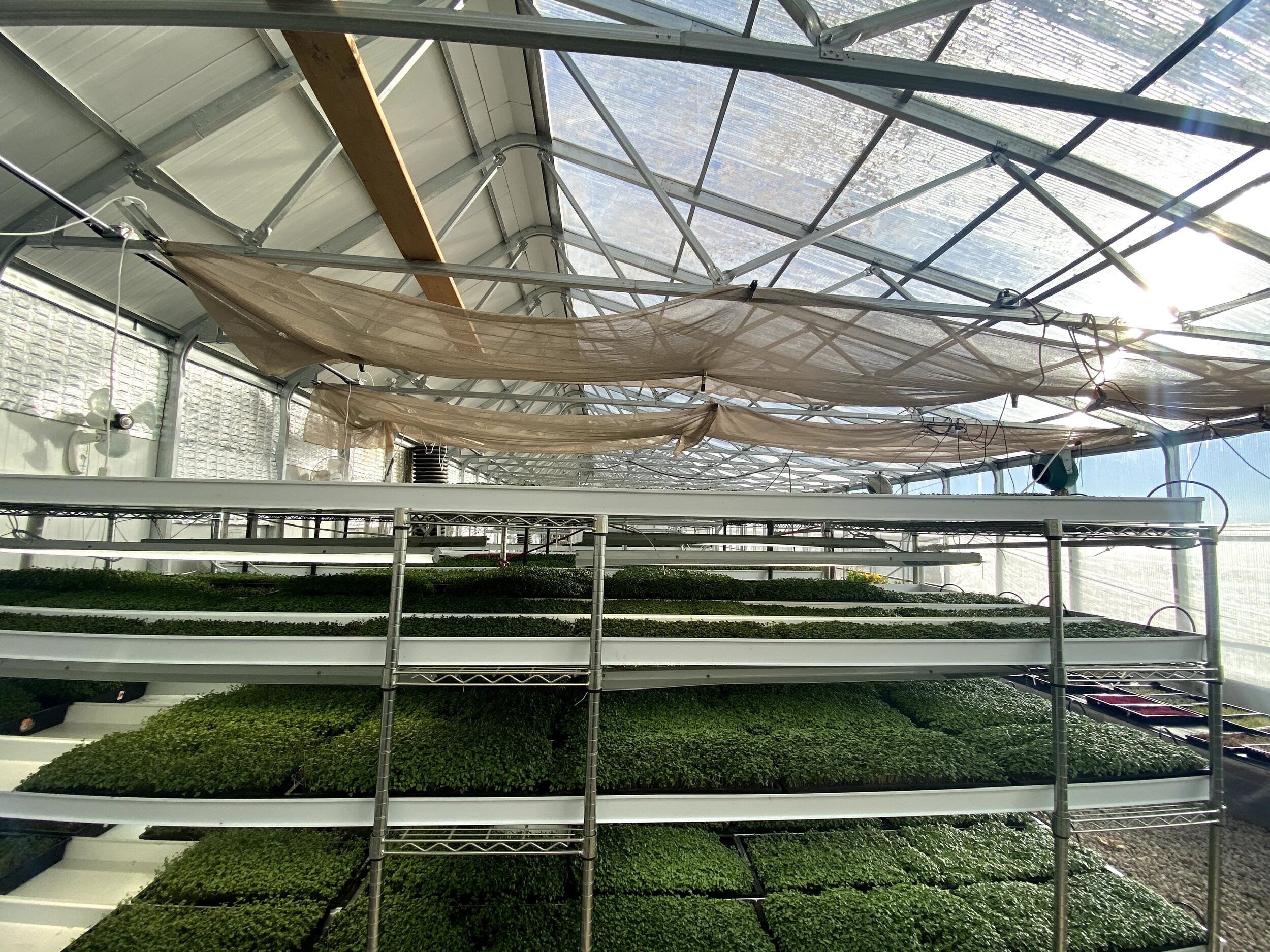Apr 1, 2020
The Real Values Of Urban Agriculture
.JPG)
Written By: Haley Bridgnell/ Ceres Greenhouse Solutions
Urban agriculture is a fascinating industry. It’s taking farmers from rural fields to metropolitan areas and is completely changing the way we grow, process and ship our food. Some innovative urban ag technologies such as hydroponic systems, solar greenhouses, and vertical farms aim to solve issues by increasing food production while using less natural resources to do so.
What sort of technological and social changes occur when you urbanize farming? Besides the obvious diminishment of land, there are various outcomes and opportunities that stem from growing food in the city versus the country. For instance, with urban land being more valuable, the return has to be higher. It is critical for urban ag businesses to think beyond just food production and find value in different aspects of urban farming. So, what are other agricultural values that urban farms can and should embrace if they want to excel in their industry?
Value of Innovation
Urban agriculture depends heavily on the advancement of food technology and sustainable food systems, because most urban farms are restricted to small areas or unique grow spaces (rooftops, abandoned parking lots, shipping containers etc). Farmers have had to adopt innovative cultivation methods like closed-loop hydroponic irrigation systems, vertical crop columns, LEDs, and growing in year-round solar greenhouses to achieve successful yields in what space they have.
With urban agriculture bridging the gap between technology and horticulture, we’re seeing professionals from different disciplines working in close collaboration to come up with highly efficient growing solutions. If we see urban farms as a space for interdisciplinary collaboration and food tech development, then we will realize that there is a lot of value that can be attributed to the urban agriculture industry. Urban farms can be a space in which scientists and farmers solve problems, and focus on opportunities that are larger than the operation alone. They can develop new technology and growing procedures that could solve food issues on a global scale.
Value of Social Impact
Another important value of urban agriculture is the social side of it. Not only do urban farms create job opportunities, but they build up local communities through education and experience. For example, cities with intermittent food deserts are turning vacant lots, dumping grounds, and abandoned industrial sites into lush agricultural sites with greenhouses, raised beds, fish ponds, composting facilities, etc. These farms employ and feed local citizens and often offer educational opportunities like horticulture training or sustainability courses. Urban agriculture brings people together and allows small communities to tackle big interconnected global challenges like climate change, food deserts and obesity. One urban farm, Emerald Gardens Microgreens in Denver Colorado, utilizes their microgreens greenhouse operation to transform local communities through distribution of fresh food to groups that need it. Urban farms are strengthening cities from the inside out by generating community pride and economic opportunities.
There is a trend in our food system of putting more and more distance between the farm and the consumer. Most people don’t know how or where their veggies were grown. With urban ag, veggies aren’t grown on a faraway rural farm, they’re grown in populated areas where most of the world’s produce is consumed anyways. When consumers are physically closer to their farms, they are given the opportunity to become more involved when it comes to their food. And, given the opportunity, people are more likely to favor produce that’s labelled “local” - even if it doesn’t look or taste as good as the produce shipped from far away. As more and more consumers become more conscious about their food, urban agriculture will become more valuable to their communities.
.jpg)
Value of Food Feelings
In a time where people are becoming closer to their food physically and emotionally, what does this mean for companies trying to enter into this blossoming industry? With the urban ag movement, a tomato is not just a tomato anymore. It’s not just something that’s picked from a field somewhere and placed among other veggies in a grocery store where it’s selected based on how good it looks. Until now, produce companies haven’t felt the need to create a brand for their products, but with innovative methods of cultivation introduced by the urban ag industry comes a new tomato story. Imagine if a person went to the grocery store and there was a tomato advertised as “grown in a Ceres Solar Greenhouse”. While it may seem a little strange to commercialize raw vegetables as such, consumers are placing more value on the story of their food than ever before. And with all the innovation and advanced technology in urban ag, the industry has created more opportunities for urban farms to brand themselves and their produce in order to appeal to the consumer, and distinguish themselves against other companies. If consumers can connect their food to a company that they recognize as credible in their minds, they are more likely to establish brand loyalty.
With the advancement of food technology, growing environments are gaining in precision, and the quality of fresh fruits and vegetables is reaching new levels. Companies that can achieve perfectly controlled grow environments, by means of a sealed hybrid greenhouse or an indoor vertical farm are marketing this story as a selling point for their products. Urban ag companies will find value in establishing a brand image early on as consumers’ ever-burgeoning appetite to eat healthier, more locally and consciously, continues.
About Ceres: Ceres creates sustainable growing environments by pairing innovative and energy-efficient design with data driven climate control technologies. We partner with our clients to ensure a flourishing year-round production. Our greenhouses can be found all over the world and range from residential projects to commercial projects. To learn more, please visit our website at www.ceresgs.com.
Further Reading
INNOVATIVE GREENHOUSES IN INDIA HELP FARMERS ADAPT TO CLIMATE CHANGE
